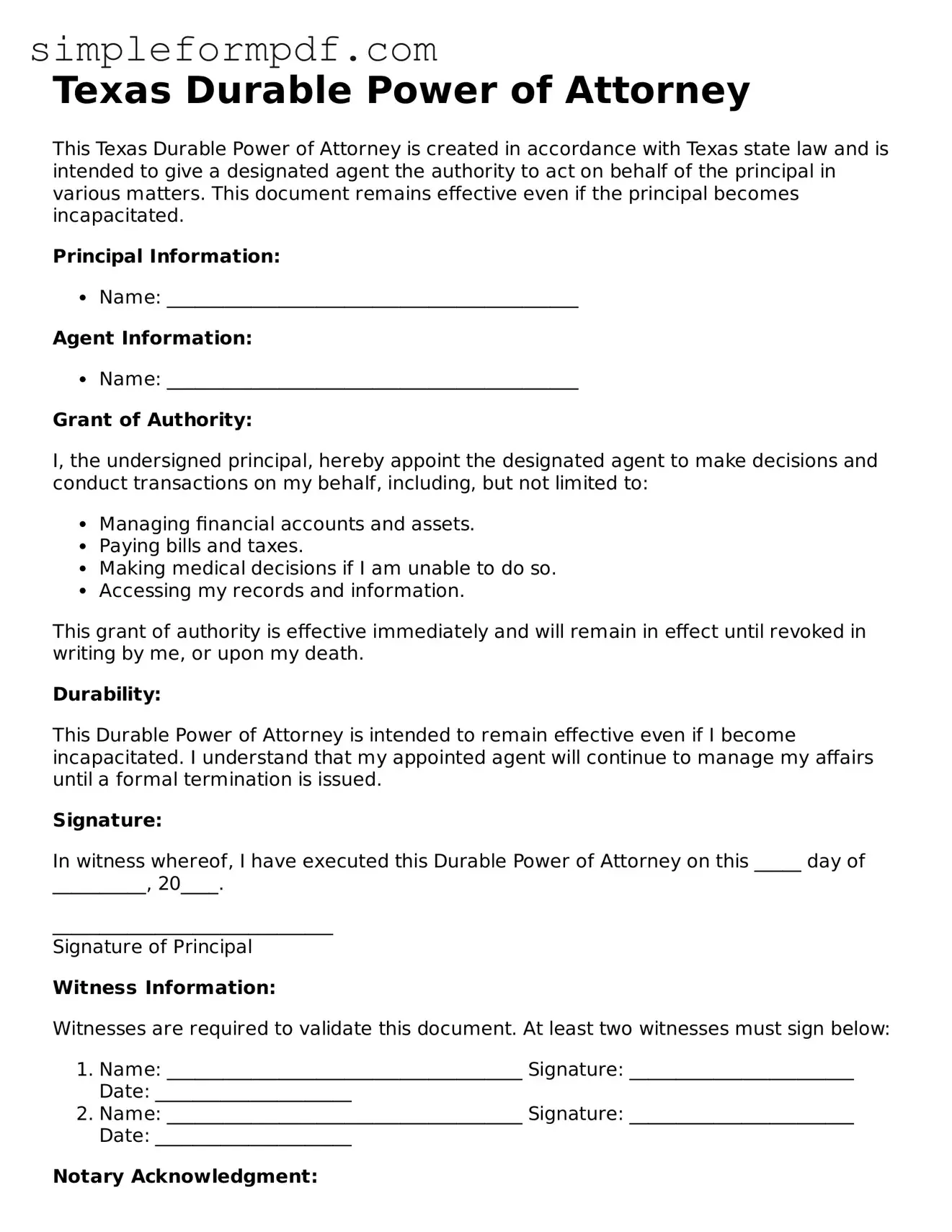Free Durable Power of Attorney Form for the State of Texas
A Texas Durable Power of Attorney form is a legal document that allows you to appoint someone to make decisions on your behalf if you become unable to do so. This form ensures that your financial and legal matters are handled according to your wishes, even when you can’t speak for yourself. It's important to take this step for your peace of mind and to protect your interests.
Ready to take control of your future? Fill out the form by clicking the button below.
Launch Editor

Free Durable Power of Attorney Form for the State of Texas
Launch Editor
Need instant form completion?
Finish Durable Power of Attorney online in just a few minutes.
Launch Editor
or
Download PDF
